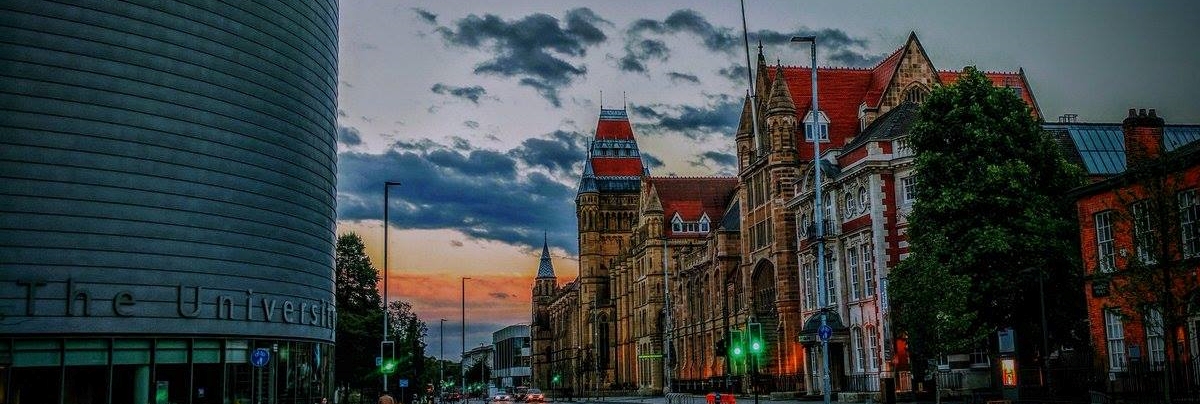
New Perspectives on the Political Theory of Migration
Anna Milioni (King’s College London); Lukas Schmid (European University Institute)
Humanities Bridgeford Street Building: Hanson Room
Up to date, the political theory of migration has been operating based on several assumptions. Migration is predominantly conceived as the one-off movement of individuals from one state to another, of which they gradually become members. In this context, the debate on migration revolves around the rights and duties of individual migrants relative to their new state of residence. Scholars tend to adopt a state-centred perspective, which focuses on the terms of the migrants’ admission and gradual integration.
New work on the political theory of migration has begun to challenge these assumptions by engaging more closely with empirical research and by questioning the broader social, political, and economic context in which migration takes place. Taking this context into account is necessary to properly understand the phenomenon of migration and to develop normative theories that address the various political questions that migration poses. Nevertheless, many areas of importance remain undertheorised. There are three underexplored research avenues that our workshop is particularly interested in investigating:
- The first research avenue focuses on how migration is inscribed in broader patterns of human mobility. In many instances, migration is not a linear movement of individuals from state A to state B. Instead, migrants engage in schemes of temporary, circular, or onward migration. How do these migration patterns inform our normative theorising about migration? Should migrants who engage in these schemes have access to different sets of rights than migrants who follow more linear migration patterns? Are there similarities between international and intranational migrations and, if so, how do these inform our reasoning about migration? What is the conceptual difference between migration and mobility?
- The second research avenue questions the state-centred perspective that most scholars adopt when they theorise about migration. Is it justified to adopt a state-centred perspective, or does this constitute an expression of objectionable methodological nationalism? How does the theory of transnationalism and the critique of methodological nationalism inform our thinking about migration? Should migration policies be determined at the level of the state? What is and what could be the role of cities and regional polities, as well as international unions of states, in the design of migration policies? Would our view of migration change if we adopted the perspective of migrants, instead of the perspective of the state?
- The third research avenue explores the impact of debates on imperialism, colonialism, and neo-colonialism on the political theory of migration. Should a state’s former or ongoing colonial practices put some limits on the state’s right to determine its migration policies? To what extent do migration controls perpetuate colonial practices? Can migration be seen as a way to correct former colonial injustices? How do global inequalities affect migration patterns and what impact should these inequalities have on a state’s migration policies? What are the points of convergence and the tensions between the claims of migrants and the claims of other marginalised social groups? More broadly, what is the normative weight of historical and geopolitical considerations in the development of migration policies?
|
|
|
|
11:00-12:30 |
Registration |
|
12:30-13:30 |
Lunch |
|
13:30-14:00 |
Welcome Speech |
|
14:00-16:00 |
– |
|
16:00-16:30 |
Tea and Coffee Break (optional) |
|
16:30-17:30 |
– |
|
17:45-19:00 |
Wine Reception |
|
19:30 |
Conference Dinner |
|
|
|
|
9:30-11:30 |
Session 2 – Beyond state-centrism Andrés Salazar Abello (Université Catholique de Louvain): Private Sponsorship Programmes and the Role of Civil Society in Immigration Control Sara Toffanin (The Arctic University of Norway): The Relevance of Non-Asylum Grounding Vulnerabilities: Exploring the Moral Permissibility of Differentiated Paths to Early Integration between High and Low-prospect Refugees |
|
11:30-12:00 |
Tea and Coffee Break (optional) |
|
12:00-13:00 |
Session 2 (continued) Esma Baycan-Herzog (University of Geneva) & Alex Sager (Portland State University): Methodological Nationalism as a Form of Ideology Critique? |
|
13:00-14:00 |
Lunch |
|
14:00-16:00 |
Session 3 – Migration, imperialism, colonialism Zara Goldstone (UCL): Relational inequality, colonialism and migration rights Paul Gorby (University of St. Andrews): Racial capitalism, neo-colonialism, and border policing |
|
16:00-16:30 |
Tea and Coffee Break (optional) |
|
16:30-17:30 |
Session 3 (continued) José Jorge Mendoza (University of Washington): A Decolonial Approach to Immigration Justice |
|
|
|
|
9:30-11:30 |
Session 4 – Migration and Mobility Andrea Foss (University of Oslo): Internally Displaced Persons and Sovereignty Beyond Non-Intervention and Self-Determination James Souter (University of Leeds): When Home Isn’t Home Anymore: Towards a Political Theory of Displacement Without Altered Mobility |
|
11:30-12:00 |
Tea and Coffee Break (optional) |
|
12:00-13:00 |
– |
|
13:00-14:00 |
Lunch |
|
14:00-16:00 |
Session 5 Takeshi Miyai (Seikei University) & Shintaro Tamate (Gakushuin University): Reframing Mobility Beyond Methodological Nationalism: Implementing Capability Approach to the Ethics of Migration Anna Milioni (King’s College London): The epistemic injustice of methodological nationalism |
|
16:00-16:30 |
Tea and Coffee Break (optional) |
|
16:30-17:30 |
– |
|
17:30 |
End of Conference |
